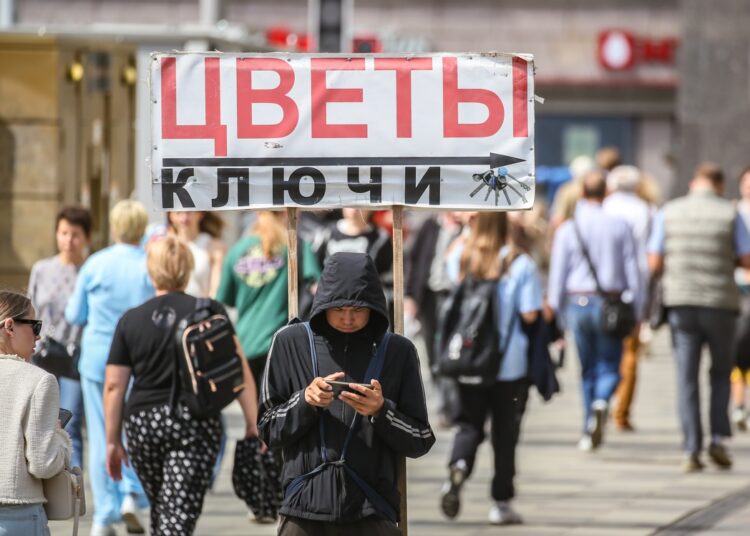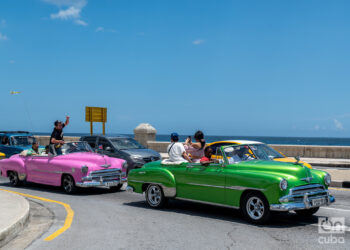Thousands of Cubans who have an irregular status in Russia could be affected by a recently approved law that seeks to control illegal immigration in the country.
After a quick passage through the Duma (Russian Parliament), the law signed by President Vladimir Putin establishes a new legal expulsion regime for immigrants who do not have legal reasons to be in Russian territory.
“These changes will not only help to increase control over the stay of foreigners in Russian territory but will also motivate them to legalize their status,” said the Russian legislators who presented the law. (Something extremely difficult for Cuban nationals given the limited options to do so).
The new federal legislation provides for restrictions on the rights and freedoms of citizens who are subject to the expulsion regime, as well as the application of various control measures.
In this way, these people will not be able to change their residence or stay without permission from the Ministry of the Interior. They will also not be allowed to travel around the country, drive vehicles, buy property, or get married.
Once the law comes into force, they will not be able to register real estate in the land registry, open deposits, or carry out other banking operations, and they will have restricted access to SIM cards.
Although these are not possibilities that they legally had, they were not expressly prohibited from doing so either, giving them room to access some of them.
Police officers will have the right to access homes and other premises where they suspect there may be illegal migrants. They will also have the authority to deport foreign citizens without trial.
The law also reduces the period of temporary stay in the Russian Federation for foreign citizens arriving under a visa-free regime, such as Cubans, to 90 days within a year.
“In no man’s land,” Cuban migrants in danger between Belarus and Poland
The new law will come into force 180 days after its publication, except for the provision on the reduction of visa-free stays, which will begin to apply on January 1, 2025.
The legislation is in line with the immigration policy followed since the March attack on Crocus City Hall, in Moscow. The attack, which claimed the lives of 143 people, was carried out by migrants from Tajikistan. Since then, a notable increase in raids, searches, and deportations of migrants has been reported.
Impact on Cuban immigration
This regulatory change further complicates the situation of thousands of Cubans who have not managed to obtain legal residency status in a country that does not facilitate this, and where this can only be done through descent or marriage to a national, or through a prior contract for certain professions, for example.
There are tens of thousands of Cubans who arrive in Russia as tourists every year. According to the Russian border service, about 25,000 visited Russia as tourists every year before the pandemic. In 2019, for example, there were 28,000.
In 2021, Cuba led tourist arrivals to Russia (44,300 people in the first three quarters of the year alone). The numbers have been declining in subsequent years, but the island is still among the main countries of origin for visitors.
According to statistics from the Border Service of the Federal Security Service of the Russian Federation, Cuba ranked tenth in the first half of this year, with 8,500 visitors.
It is known that a significant part of these decide to remain in Russian territory after completing the 90 days of legal stay. The exact figures are not known and may vary due to the changing nature of migration and the lack of precise official data on the Cuban community in Russia.










